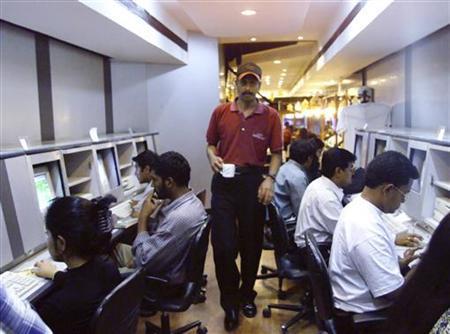Photographs: Reuters.
A new 7,800 km undersea data cable has opened to traffic in Asia linking Japan, Malaysia, Singapore and the Philippines which could aid in financial trade.
The Submarine-cable Express (ASE) transfers data via an optical fibre system at 40 gigabits per second, and is three milliseconds faster than any other cable between Singapore and Tokyo, the BBC News reported.
The gain in speed may sound small, but could prove critical to financial trades made out of the region.
So-called "high frequency trades", controlled by computers, involve making what may be hundreds of thousands of transactions in less than a second - all determined by a program that tracks market conditions.
With banks and hedge funds competing against each other, the size of the profit or loss can come down to a matter of beating the competition by a fraction of a second, explained Ralph Silva, a strategist at Silva Research Network.
"High frequency trading is basically computer trading - you program a set of rules and as events happen - the computer decides buy or sell commands," he was quoted as saying by the BBC.
"As all incoming data is received by all banks at the same time, and because the computers are all the same with the same speed of processors, the length of time the command takes to get to the exchange makes a big difference," he said.
"Three milliseconds in computer time is an hour in human time," he added. The route for the new cable was chosen to be as straight as possible, reducing the time to get information from one end to the other to 65 milliseconds.
The data transfer capacity of 40 Gbps is the equivalent of downloading a high-resolution DVD in about two seconds.
The new facility adds to a web of undersea cables in the waters around Japan. These include ones run by Australian operator Telstra International; Taiwan's largest phone operator Chunghwa Telecom; and the global telecommunications service provider Pacnet, based in Singapore and Hong Kong.
Many were damaged by a powerful earthquake near Japan's northeast coast in March 2011.
The problems helped influence where the new cable was laid, said Japan's biggest telecommunications provider.
"We avoided the area around Taiwan, where earthquakes are common, and laid the route near the Philippines instead, making the cable very safe and reliable," Hiroyuki Matsumoto, senior director of network services at NTT, one of the four partners involved in the project said.


article